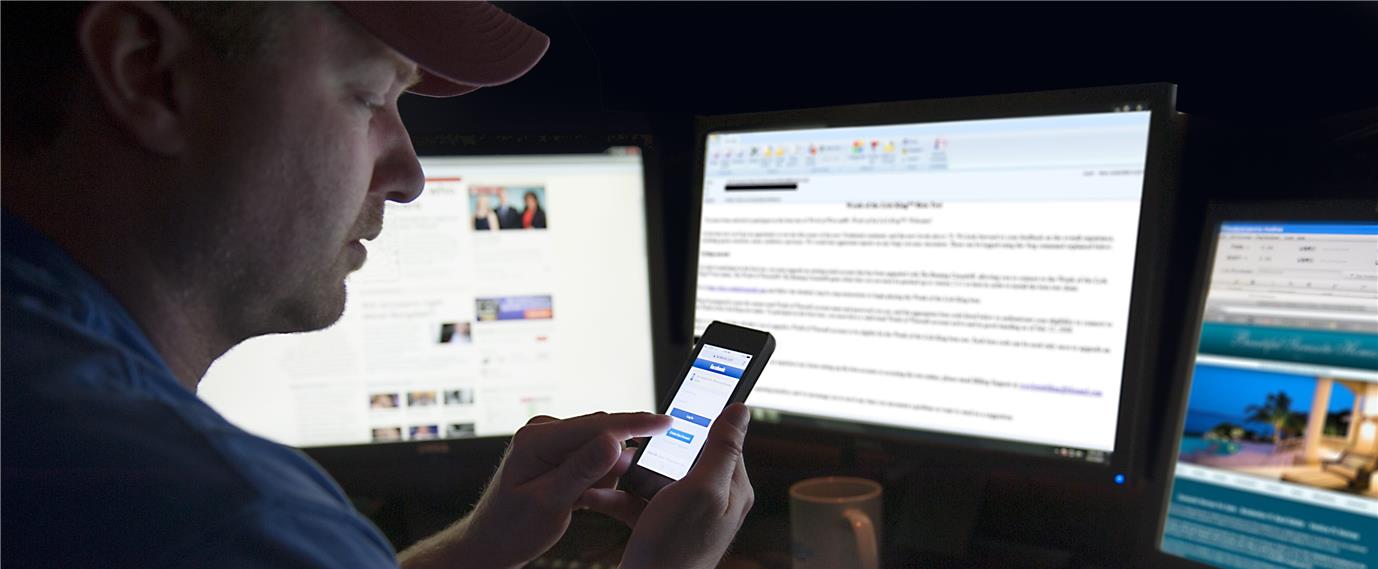بدا واضحا في الآونة الأخيرة مزاحمة الإعلام الجديد والبرامج التي تربط أبناء الأرض ببعضهم البعض للسلطات الأولى بسبب تأثيرها القوي وتعبئتها للرأي العام في كل مكان. وأصبح القائمون على الإعلام بحاجة إلى صياغة نظرية جديدة في مجال الاتصال تتحدث عن شدة هذا التأثير وعوامله بطريقة مقننة. فبعد الفيسبوك، اتجه الكثير من المشاهير بصفة خاصة إلى تويتر، الذي وفّر لهم قدراً أكبر من الخصوصية، ثم إلى أنستغرام، الذي كفل لهم نشر صورهم وأخبارهم يومياً لمحبيهم حول العالم. لكن اليوم، يبدو أن الكفة ستميل إلى تطبيق سناب شات، الذي زاد الإقبال عليه خاصة في منطقة الخليج، ليشترك فيه الكثير من النجوم ومشاهير المجتمع وخبراء الجمال ومحرري الموضة، ما جعل هؤلاء المشاهير يؤثرون بشكل بالغ في جمهورهم الذي يتابعهم لحظة بلحظة بحسب تغذيتهم المتواترة للسناب.
للأسف الشديد إن نظرة سريعة وعروجا مباشرا على صفحات عدد عشوائي من المشاهير في محيطنا العربي تجزم أننا ما زلنا نعاني من سوء في استخدام التقنيات الحديثة، فهذه المواقع الاجتماعية الخاصة برفع المقاطع المصورة كانت منذ البداية تستهدف عرض فيديوهات شخصية يقوم المستخدم بالتقاطها لمواضيع جماهيرية هامة أو مشاكل مغمورة يكشفها للعلن أو أي من أوجه الفائدة أو التعلم أو حتى التسلية المعقولة ، لكن الاستخدام الأغلب للمرتادين العرب يدخل في باب التسلية والتسخيف غير المعقول وغير المستهجن.
تعد مواقع التواصل الاجتماعي والمنتديات والمدونات الإلكترونيّة، كنزا من كنوز الإطلالات الجماهيرية الناجحة للمشاهير الموهوبين، لكنها في الوقت ذاته وسائل مثالية لتغذية أوهام ذوي الملكات الهشة وتغذية أناهم؛ لا سيما وأن الحاجز الرقمي بينهم وبين المتلقين لا يحتاج إلى تنمية مقدرتهم على التواصل المباشر مع مسامع وأبصار من يتحدثون إليهم بطريقة صحيّة معافاة، ومن ثم يصعب اكتشاف فقرهم المعرفي وضحالتهم الثقافية. وبهذا تتضخم أسماؤهم في فقاعات الأوهام الفيسبوكية والتويترية والسنابشاتية والأنستغرامية يوما بعد آخر، مساهمين بالهبوط في مستوى الذوق العام دون محاولات جادة للارتقاء بما يظنونه شغفا أو موهبة.
إن التطور التكنولوجي أدى إلى دور شديد التأثير في وسائل الإعلام التي أصبحت بالفعل السلطة الأولى قبل سلطات التشريع والتنفيذ والقضاء بفعل قدرتها على التأثير والتغيير كما نرى هذه الأيام في ثورات الشباب، وهو ما يؤكد المقولة المشهورة عن الزعيم البولندي "ليخ فاونسا" عندما سئل عن أسباب انهيار الأنظمة الشيوعية في دول شرق أوروبا والاتحاد السوفياتي فقال باختصار "إن كل ما حدث بدأ من التلفزيون!". وفي الوقت الحاضر، برزت شبكات التواصل الاجتماعي كلاعب هام مثير للجدل في التغييرات الأساسية التي اجتاحت المنطقة العربية، فالحكومات والمنظمات التجارية على حد سواء بدأت تلاحظ وتبدي اهتماما بالقدرات الكامنة التي يوفرها الاختراق المتزايد لأدوات شبكات التواصل الاجتماعي في المنطقة العربية والأنماط الجديدة للحكومة وطرق أداء الأعمال، فالثقافة العربية -للأسف الشديد- تعتمد على المعلومات من الروابط الاجتماعية أكثر من اعتمادها على المؤسسات الرسمية أو البيانات الصحفية الرسمية.
كما نشطت حركة التدوين في العالم بشكل عام والعالم العربي بشكل خاص من قبل شباب أظهر قدرة جيدة في كتابة الافكار وطرحها أمام الملأ، بل أضحت المتابعة المتزايدة التي يحققها المدونون تستثير حافظة الكثير من المتتبعين لوسائل الإعلام الجديد.
قبل ما يقرب من 10 سنوات، أحدثت "صحافة المواطن" المتمثلة في المدونات (البلوغز) صيحة في عالم الصحافة الجديد. وكانت تفجيرات لندن 2005 من ساهم في خلق هذه الموجة، حيث قام عدد من الشباب المتواجدين في المكان بتصوير الحدث بهواتفهم المحمولة ورفعوا الصور على مدوناتهم ما جعل عددا من وسائل الإعلام تلجأ لتلك المدونات على وجه السرعة لاستخدام الصور.
في الحقيقة، قامت حركة التدوين العربية على نشر ثقافة الرأي والرأي الآخر وإثراء المحتوى العربي على الإنترنت في تخصصات مختلفة، وقد بدأت هذه الحركة في ظل تواجد كثيف للمستخدم العربي على الإنترنت الذي أفاد المستخدم العربي كثيرا إضافة للمخزون المعرفي المتشكّل لديه. وقد نشأت الكثير من المبادرات العربية لعقد لقاءات جامعة لمدونين عرب من قطاعات ومجالات مختلفة للحديث عن أهمية التدوين والمساهمة في إثراء المحتوى العربي وحث الشباب على القيام بهذا الدور حتى أصبح هناك عدد هائل من المدونات الشخصية أكثر بكثير مما نتصور.
والآن، أُطلقت نداءات كثيرة تطالب مستخدمي الإنترنت -وعلى قفا الربيع العربي- بضرورة استثمار مجال المدونات الإلكترونية بوعي عالٍ وتحرك مدروس من أجل مناصرة القضايا المجتمعية، وتوسيع أفق التعبير الحر، وترسيخ قاعدة الصحافة الشعبية وتشجيعها في أوساط المجتمع.
ولأن أغلب المدونات في العالم العربي اتَّخذت كسوةً سياسيّةً صرفة، فقد أشعل جزءٌ كبير منها فتيل الإضرابات الجماعية والثورات المتواترة في تونس ومصر ومن ثَمَّ ليبيا واليمن، حيثّ كانت المدونات في تلك الأحداث توجه الحِراك السياسي وتَظهَر كقوة سياسية متعاظمة تُدير وتُحرك الجماهير الفسيفسائية في كل مكان. تلك الجماهير التي ثارت من أجل نفض الفساد بكل أشكاله وتحسين الأحوال المعيشية والاقتصادية إضافةً إلى مرارة سيناريوهات التضييق الأمني والسياسي التي كابدتها تلك الشعوب التي وجدت من فضاء العالم الافتراضي متنفسا ديمقراطيا حقيقيا حولتهُ إلى غرفة عمليات كبيرة تمّ خلالها تعبئة الجماهير وتنفيذ خطط لا متناهية أطاحت برموز وطنية وغيرت من قرارات تعسفية كثيرة وقوانين جائرة.
واليوم يقع على المدونين العرب (مؤرخي العصر) الكثير من الاعتبارات، خاصًة تلك التي تشير إلى ضرورة إسهامهم في تأسيس عمل تدويني جاد وملتزم بقضايا مجتمعهم؛ وكفيل بتخليق ھذا الفضاء الحيوي، وقادر على استثمار الإمكانات الفعلية التي يتيحها؛ سواء في تأطير وتنشئة وتنوير المجتمع؛ أو الضغط على صانعي القرار باتجاه بلورة قرارات أكثر مصداقية وقربا من المجتمع، والسعي لطرح القضايا الوطنية في شتى المجالات على الشبكة العنكبوتية بجرأة وموضوعية، وذلك وصولاً لتشكيل رأي عام عالمي مناصر لهذه القضايا والتحرك الجاد لحلّها وتحقيق السلام والتنمية المطلوبة.
ومن الملاحظ أن ثمّة توجهات ومجالات بعينها أصبحت أكثر رواجا من غيرها بين المدونين العرب وهي التدوين حول السياسة والتقنية والتنمية البشرية وريادة الأعمال، ولكن لابد أن نوضح أولا أن عملية التدوين هي عملية حرة لا تخضع لرقابة أو قيود لذلك لا يمكن التحكم بها ولا توجيهها حتى مع وجود مؤسسات تهتم وتنادي بتنظيم حركة التدوين العربي وتطويرها، بل قد يؤدي ذلك إلى تقييد المدون العربي، الأمر هنا أشبه بنظرية تشارلز داروين للنشوء والتطور، فإنَّ عملية تطور حركة التدوين العربي هي عملية ذاتية وفقا للمجهود المبذول من قبل المدونين وتوجهاتهم وتأتي ضمن معايير وسياسات يقومون بتحديدها لأنفسهم، مع ضرورة التأكيد على وجود المعايير الأخلاقية في التدوين والتي لا يختلف عليها أحد.







































